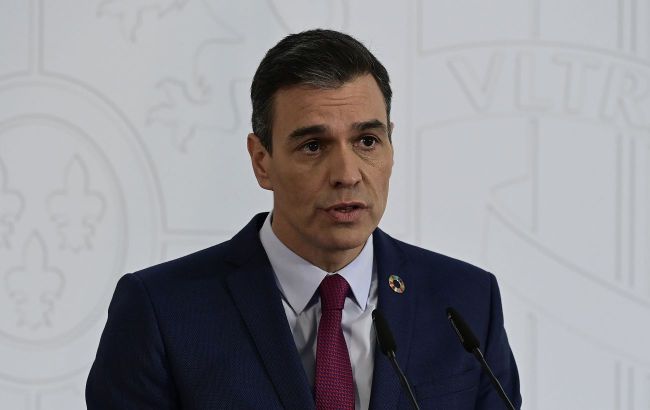Spanish PM calls for increased investment in EU defense due to Russia's aggression
 Spanish Prime Minister Pedro Sanchez (Getty Images)
Spanish Prime Minister Pedro Sanchez (Getty Images)
Spanish Prime Minister Pedro Sánchez has called for increased investment in the defense industry at the European level in the face of Russian aggression. Specifically, he stressed the need to bolster deterrence capabilities and elevate the industry's prowess to match that of the European economy, according to El Boletin.
Sánchez once again lamented the prolonged neglect of the European security and defense industry, resulting in a €56 billion investment deficit.
"We have fewer capabilities, we suffer from digital vulnerabilities exacerbated by the rise of artificial intelligence, significant shortcomings in the defense industry, despite the European economy being seven times larger than the Russian one," he said.
Therefore, according to him, the EU needs to "hold the same cards as other states, if only to ensure we don't have to play them."
"We need to bolster our deterrent capabilities, not to be feared, not to engage the world in an arms race, but to be respected, to defend the great project of peace, democracy, and freedom that is Europe," emphasized Sánchez.
Calls for increased investment into defense
Earlier, NATO Secretary General Jens Stoltenberg said that a record 18 out of 31 NATO members would meet the alliance's defense spending target of 2% of GDP this year.
Additionally, Danish Prime Minister Mette Frederiksen argued that Europe should limit social welfare spending and reduce taxes to counter a more aggressive Russia by steadily increasing defense and security funding.
European Commission President Ursula von der Leyen also remarked that the European Union needs to do more for defense, replenish and modernize weaponry, and support Ukraine.
Recently, Polish President Andrzej Duda declared that NATO member countries should increase defense spending to 3% of GDP.

